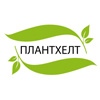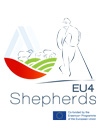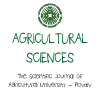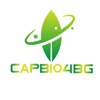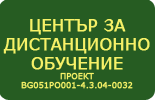Biological vegetable growing
|
Course title: |
Biological vegetable growing |
|
|
Course code: |
LGBVG |
|
|
ECTS: |
5 |
|
|
In-class hours |
Lectures: |
15 |
|
Laboratory work/Tutorials: |
15 |
|
|
Self-preparation hours |
Practical training: |
90 |
|
Other: |
35 |
|
|
Total hours: |
125 |
|
|
Language: |
English |
|
|
Study cycle: |
Bachelor, Master, PhD |
|
|
Semester: |
Winter & Summer |
|
|
Faculty: |
Faculty of Horticulture and Viticulture |
|
|
Name of the lecturer(s): |
Assoc. Prof. Kostadin Kostadinov, PhD |
|
|
Mode of delivery: |
Face-to-face, distance learning or a combination of both |
|
|
Prerequisites: |
No |
|
|
Learning outcomes of the course unit: |
The main purpose is to be given all specific theoretical and practical skills of students in field of biological vegetable growing – basic principles, approaches, technology of growing and plant protection. |
|
|
Course contents: |
1. The essence of organic vegetable production. 2. Rotation of crops. 3. Seed production. 4 Seedlings production. 5. Fertilizing. 6. Plant protection. 7. Biological production of tomatoes. 8. Biological production of cucumbers. 9. Biological production of watermelons. 10. Biological production of cabbage. |
|
|
Recommended or required reading: |
1. Firth, C.; Milla, I.; Harris, P. The use of indicators to assess the sustainability of farms converting to organic production. Henry Doubleday Research Association (HDRA), Ryton Organic Gardens, Coventry, CV8 3LG, UK, 2008. 2. Shipp, L.; Elliott, D.; Gillespie, D.; Brodeur, J. From chemical to biological control in Canadian greenhouse crops. Greenhouse and Processing Crops Research Centre, Agriculture and Agri-Food Canada, Harrow, Ontario N0R 1G0, Canada., 2007. 3. Ester, A.; Wilson, M. J. Application of slug-parasitic nematodes. Applied Plant Research Ltd, Business Unit Arable Farming and Field Production of Vegetables, PO Box 430, 8200 AK Lelystad, Netherlands, 2005. 4. Parvathi, P.; Grote, U.; Waibel, H. Fair Trade and organic agriculture: a winning combination? Institute of Development and Agricultural Economics, Leibniz University Hannover, Hannover, Germany, 2018. 5. Halberg, N.; Alrøe, H. F.; Knudsen, M. T.; Kristensen, E. S. Global development of organic agriculture: challenges and prospects. Research Centre Foulum, Department of Agro-ecology, Danish Institute of Agricultural Sciences, P.O. Box 50, Blichers Allé 20, DK-8830 Tjele, Denmark, 2006. |
|
|
Planned learning activities and teaching methods: |
Lectures, presentation, practical exercises. |
|
|
Assessment methods and criteria: |
Project |
|
 - Събития по случай 80-я юбилей на АУ
- Събития по случай 80-я юбилей на АУ
